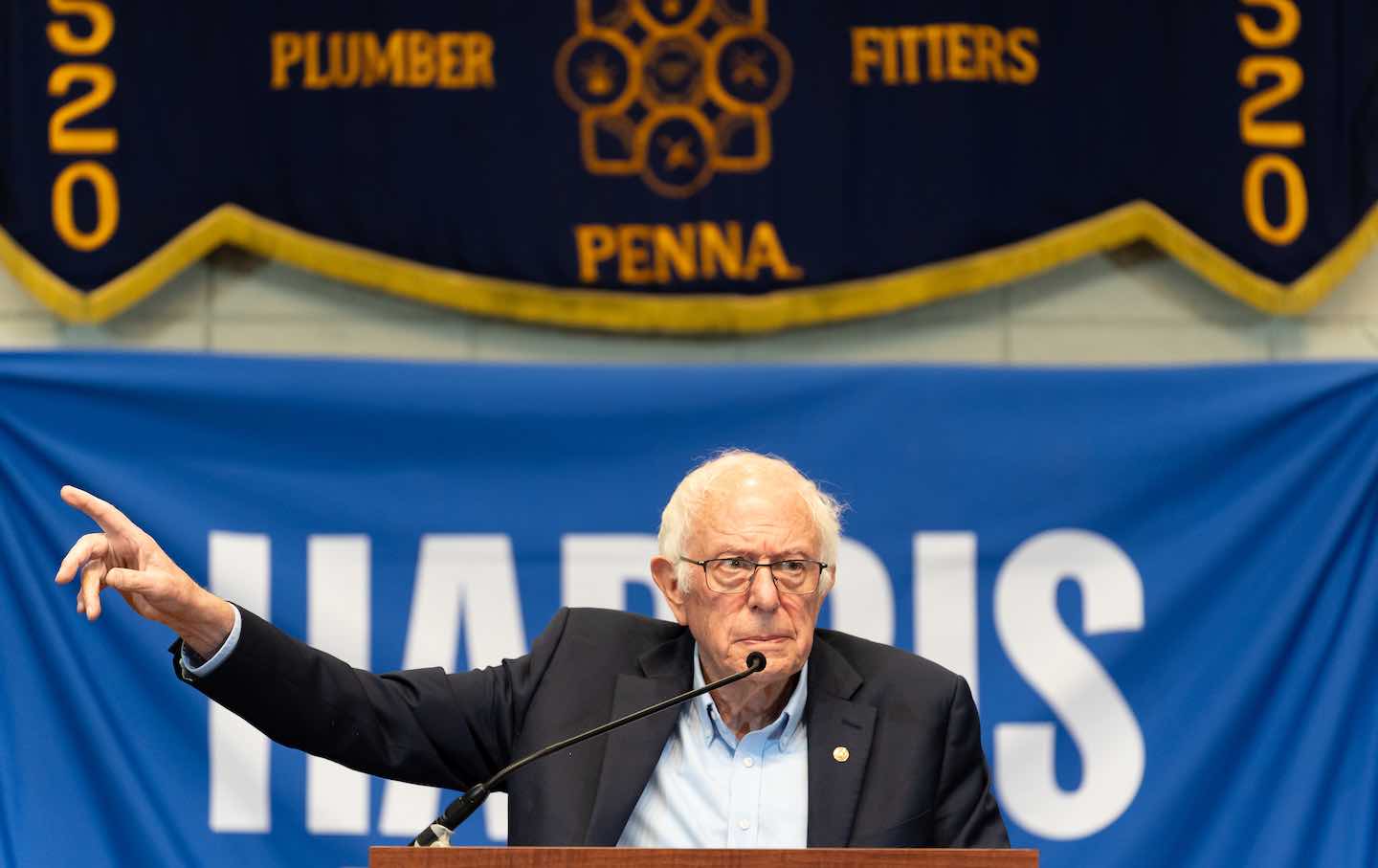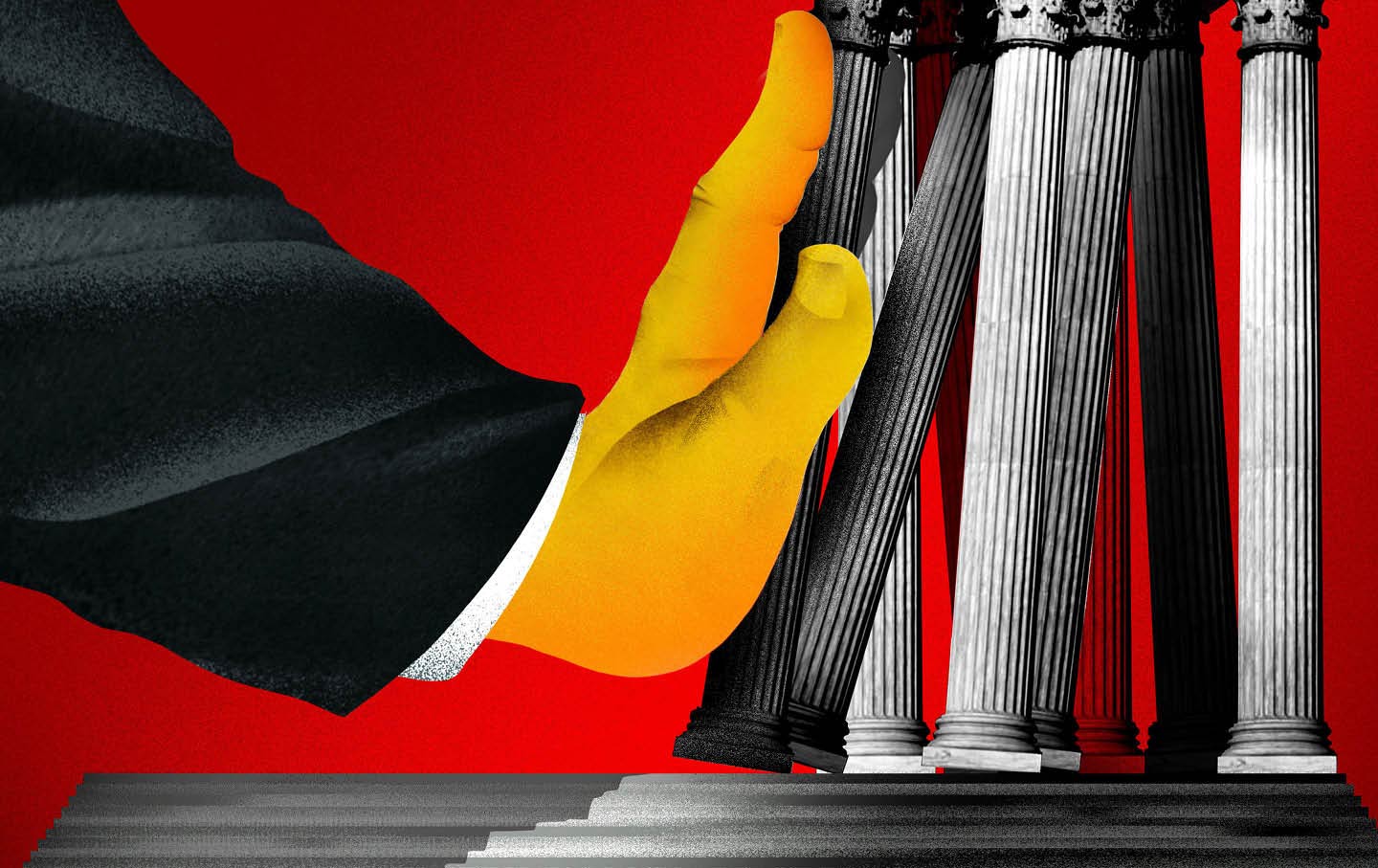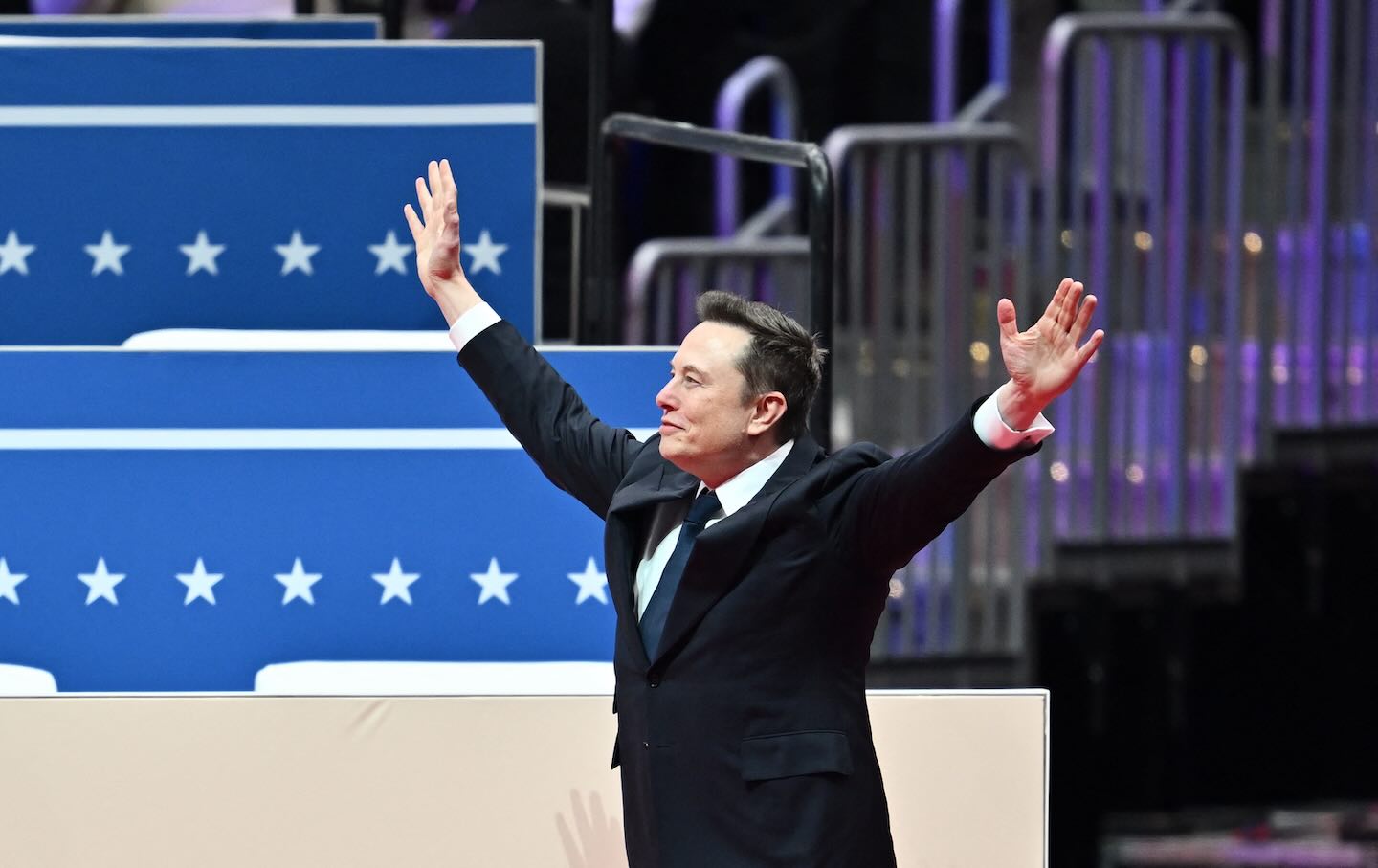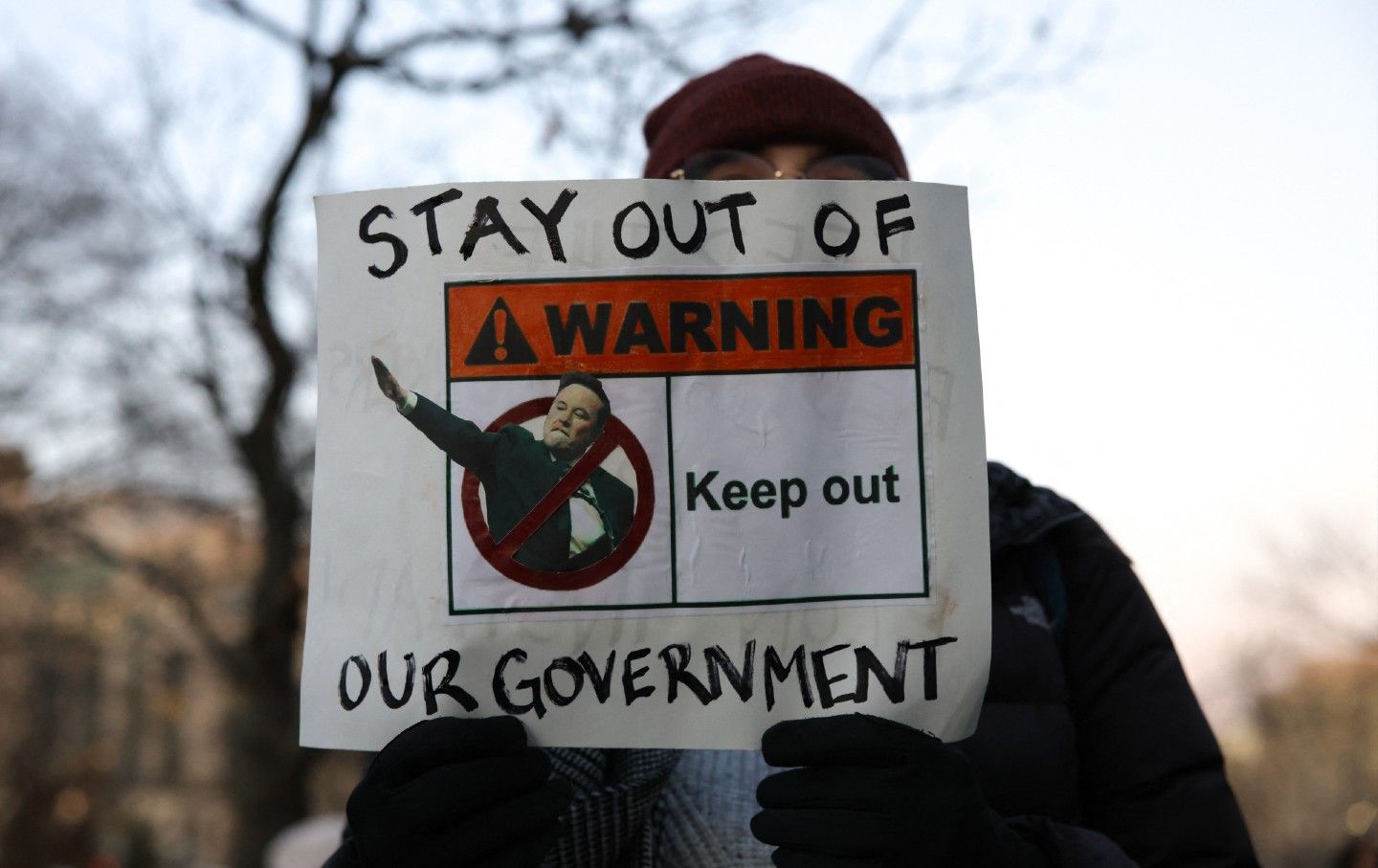
Bernie Sanders caused a stir last week, when the independent senator from Vermont and two-time contender for the Democratic presidential nomination sent a postelection e-mail to his progressive supporters across the country. In it, he argued that the Democrats suffered politically in 2024 at least in part because they ran a campaign that focused on “protecting the status quo and tinkering around the edges.” In contrast, said Sanders, “Trump and the Republicans campaigned on change and on smashing the existing order.” Yes, he explained, “the ‘change’ that Republicans will bring about will make a bad situation worse, and a society of gross inequality even more unequal, more unjust and more bigoted.”
Despite that the reality of the threat they posed, Trump and the Republicans still won a narrow popular-vote victory for the presidency, along with control of the US House. That result has inspired an intense debate over the future direction not just of the Democratic Party but of the country. And the senator from Vermont is in the thick of it.
In his e-mail, Sanders, a member of the Senate Democratic Caucus who campaigned in states across the country this fall for Vice President Kamala Harris and the Democratic ticket, asked a blunt question: “Will the Democratic leadership learn the lessons of their defeat and create a party that stands with the working class and is prepared to take on the enormously powerful special interests that dominate our economy, our media and our political life?”
His answer: “Highly unlikely. They are much too wedded to the billionaires and corporate interests that fund their campaigns.”
In the face of that stark circumstance, Sanders speculated about how activists can “build a multi-racial, multi-generational working-class movement” in these times. Among the prospects he put on the table was that of challenging corporate-aligned candidates of both major parties. “Should we be supporting Independent candidates who are prepared to take on both parties?”
Sanders’s question was rooted in his own experience as a candidate who won his first campaign for mayor of Burlington, Vermont, in 1981, as an independent challenger to a five-term Democratic mayor, and who has run winning campaigns for the US House and Senate as an independent progressive. It was also influenced by the campaign of former union leader Dan Osborn, who ran this fall as a working-class independent in the deep-red state of Nebraska.
Against an entrenched Republican incumbent, and without big money backing or party support, Osborn shocked pundits by winning 47 percent of the vote. Sanders and other progressives might not have agreed with Osborn’s approach to every issue, but they recognized the success of an independent candidate who, as Dustin Guastella, a research associate at the Center for Working Class Politics and the director of operations for Teamsters Local 623, and Bhaskar Sunkara, president of The Nation, noted in a recent Guardian article, “outperformed Kamala Harris in Nebraska by 14 percentage points while running an assertively anti-establishment, pro-union platform.”
Amid much speculation about just what Sanders meant with his advocacy for independent candidates who take on both major parties, I spoke with the senator about his e-mail, which he acknowledged had “struck a nerve.” Here’s a lightly edited portion of a longer conversation we had about the future of working-class politics in America.
—John Nichols
John Nichols: Dan Osborn overperformed the Democratic ticket by a higher percentage than other challengers to Republicans in key Senate races. Why do you think that was the case?
Bernie Sanders: I think that what Dan Osborn did should be looked at as a model for the future. He took on both political parties. He took on the corporate world. He ran as a strong trade unionist. Without party support, getting heavily outspent, he got through to working-class people all over Nebraska. It was an extraordinary campaign, and it tells me that the American people are sick and tired of seeing the rich getting richer. They think billionaires dominate both political parties. They want real change, and Dan’s campaign raised those issues in a very significant way.
Nichols: In your post-election e-mail Saturday, you suggested that activists should explore backing at least some independent candidates—especially in red states where the Democratic brand looks to be a tough sell. You’re not talking about creating a third party, or creating a new political grouping, are you?
Sanders: Not right now, no. What I am saying is that, building off of Osborn’s campaign, first of all, we need strong working-class candidates who are prepared to run on working-class issues. That’s number one. Number two, where people can run in the Democratic primary and win, that’s fine. Where it is more advantageous to run as an independent, outside of the Democratic primary process, we should do that, as well.
At the end of the day, in a three-way race, it takes 35 percent of the vote to win. So, if you have a strong progressive candidate, running on economic issues, do I think that in certain circumstances that that candidate can defeat establishment Democrats and Republicans? The answer is, “yes.”
Nichols: You’re comfortable with challenges that take on both parties?
Sanders: Absolutely.
Nichols: Even if there are people in the Democratic Party leadership, in the consultant class, who will not approve of that approach?
Sanders: Of course. The Democratic Party is, increasingly, a party dominated by billionaires, run by well-paid consultants whose ideology is to tinker around the edges of a grossly unjust and unfair oligarchic system. If we are ever going to bring about real change in this country, we have got to significantly grow class consciousness in America.
The questions that have to be asked [by activists who are serious about developing a powerful alterative to the Republicans] are: “Why in the wealthiest country in the history of the world are 60 percent of our people living paycheck to paycheck? Why do 60,000 people a year die because they don’t get to a doctor on time? Why can’t young people afford higher education?” Those are the issues that have got to be talked about, that have got to be carried into the political sphere. And the Democratic Party—with few exceptions—is by and large not interested in doing that.
Nichols: That’s a sharp criticism of the approach the Democratic Party has taken in recent years.
Sanders: There was a time in history—under FDR, even [under] Harry Truman, all the way up to Kennedy—where the Democratic Party was the party of the working class. I don’t think very many people believe that is the case today. In fact, what this last campaign was about was the Democrats doing much better among upper-income people, while the Republicans did much better in working-class communities.
Unfortunately, Trump had an appeal to working-class people. But his “solutions” will make a bad situation even worse.
So, we need candidates who say, “Yes, the system is broken. Yes, we need fundamental change, but it’s not Trump-type change. It’s a change that takes big money out of politics and creates an economy that works for all—and not just the few.
Nichols: You ran your House and Senate campaigns as an independent. So, it is clearly possible, in at least certain circumstances, and in certain states, to change the political calculus.
Sanders: Absolutely. Yes, absolutely. My own history, as you’ll recall, is that we have one seat in the US House in Vermont. In 1988, I ran for that seat. It was a three-way race, and I came in a close second behind a Republican. A third candidate, a Democrat, got 19 percent of the vote. The next time around, it turned out that the Democrat did not run and I won by 16 or so points.
We just cannot sit back and accept candidates who are not prepared to stand up to Big Money interests and fight for the working class. We cannot continue to do that. So, in one way or another, we have got to bring forth candidates who [will stand up to Big Money].
I think you can [in many circumstances] do it in Democratic primaries. The very first demand has got to be to get super PACS—AIPAC[-aligned groups] and other super PACS—out of Democratic primaries. And if the Democratic leadership is not prepared to do that, if it is not prepared to take steps to assure that billionaires do not dominate the Democratic primary process, you know where they are coming from. And that is not acceptable.
Nichols: In your e-mail, you ask, “How do we create a 50-state movement, not politics based on the electoral college and ‘battleground’ states?” In states such as Wisconsin and Nebraska, we’re seeing Democratic parties being revitalized. But there are many states where that does not appear to be happening now.
Sanders: Absolutely. What has gone on in recent years is, instead of saying, “How do we grow a grassroots movement in every state in the country to take on the incredible power of the billionaire class?, Democratic politics [have] been about, “How do we win elections tomorrow, and focus on the battleground states and pour enormous amounts of money into those states?”
Popular
“swipe left below to view more authors”Swipe →So, there are probably 10, 15 states where the Democratic Party virtually doesn’t exist—despite the fact that there are great progressives activists out there, great working-class activists out there, great trade unionists out there, people who are fighting for justice in every state in this country. And they largely have been ignored [by Democratic Party donors and leaders].
[The work of rebuilding political infrastructure in the states] speaks to long-term politics—to winning elections in Nebraskas, in West Virginias.
But even shorter term, the fact that there was a decline in the Democratic turnout [at the presidential level in the vast majority of states in 2024], that impacted House races, obviously, which allowed Republicans to retain control over the House.
So, it goes without saying that anyone who is serious about transforming America has got to develop a 50-state strategy and put money and resources and people into those states [that have been neglected by the Democratic Party].
Nichols: And you believe that a big part of that is recruiting working-class candidates?
Sanders: They’re out there. I’ve met them all over the country—great working-class people starting to run for office and taking on the powerful special interests who have so much power today.
John Nichols, The Nation’s national affairs correspondent, has covered Bernie Sanders for many decades. Together, they wrote the New York Times bestseller, It’s O.K. to be Angry About Capitalism. Nichols is also the author of the book, The Fight for the Soul of the Democratic Party.
More from The Nation

It’s Time for the Democrats to Throw Off the Dead Hand of Clintonism It’s Time for the Democrats to Throw Off the Dead Hand of Clintonism
More than 20 years after Bill Clinton left office, Democrats remain in the grips of his New Democrat politics. That’s a serious problem.

How Trump Could Remake the Supreme Court for a Generation How Trump Could Remake the Supreme Court for a Generation
Donald Trump is poised to become the first president since FDR to have appointed the majority of high-court justices. His potential picks are terrifying.

Nazis and Racists and “Big Balls,” Oh My! Nazis and Racists and “Big Balls,” Oh My!
Elon Musk’s DOGE-boys are hacking our government. The misogynist bros of the 2014 Gamergate travesty have won. For now.

The Democrats’ Choice: Fight Trump’s Oligarchy or Keep Groveling to Billionaire Donors The Democrats’ Choice: Fight Trump’s Oligarchy or Keep Groveling to Billionaire Donors
Elon Musk’s power grab is finally energizing a resistance. But it’s already being undermined by the party elite’s dependency on Silicon Valley.

RFK Junior, Bad Bobby RFK Junior, Bad Bobby
A reminder of what was, and what is.



